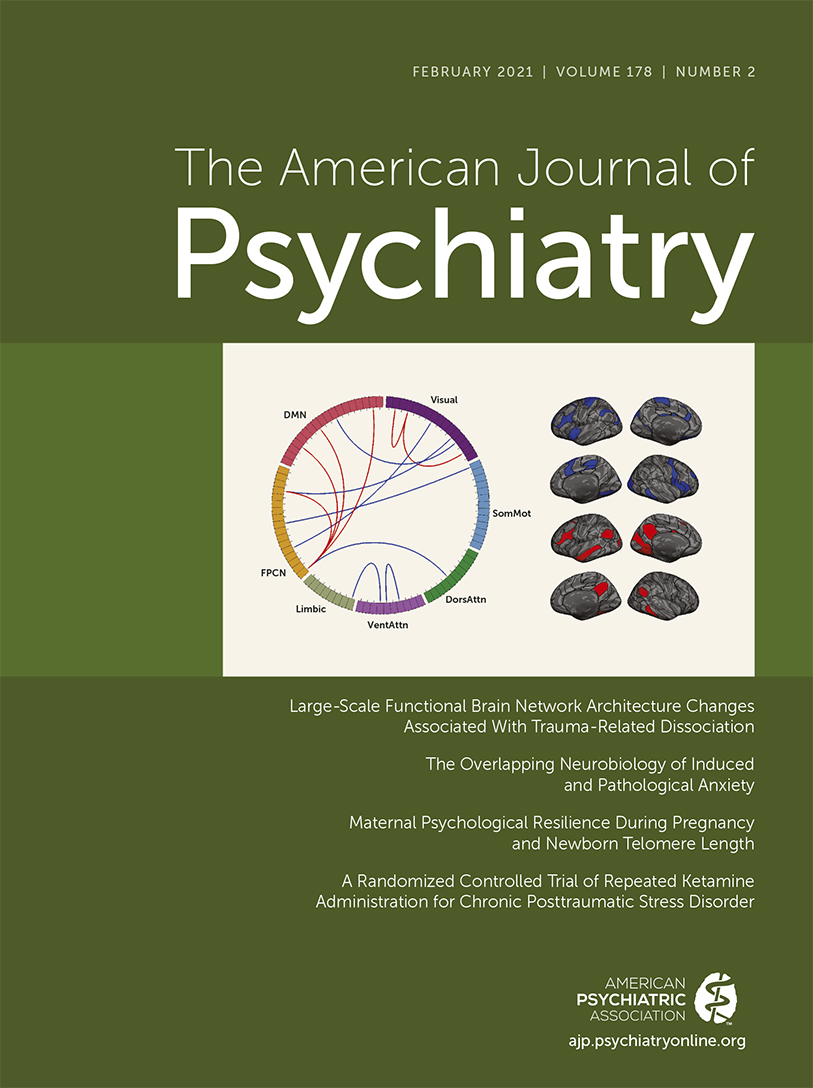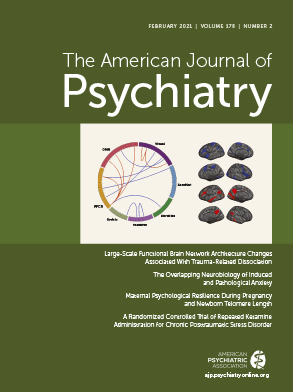T
o the E
ditor: Physicians experience burnout and anxiety in the course of their work. Public health emergencies may exacerbate burnout and anxiety. Recent research from China has found that anxiety among health care workers during the COVID-19 pandemic was disproportionately experienced by women (
1). Previous studies consistently demonstrate higher levels of burnout among women (
2). Scholars have emphasized the importance of investigating the experiences of women and mothers (
3) because work-related and childcare disruptions from the pandemic may disproportionately affect women.
To quantify the mental health impact of the COVID-19 pandemic on a predominantly U.S. cohort of physician mothers, we surveyed the Physician Moms Group on Facebook from April 18 to April 29, 2020, after receiving approval from the institutional review board at Stanford University. We used standard scoring for the Generalized Anxiety Disorder 7-item scale (GAD-7) and defined frontline workers as those who had cared in person for a patient with presumed or confirmed SARS-CoV-2 infection within the last 14 days.
In a multivariable linear regression model of anxiety, we included the following theoretically relevant covariates: frontline worker status, whether the respondent was an informal caregiver (defined as having provided regular care or assistance to a friend or family member who had a health problem or disability in the past 30 days), and key demographic variables (race, ethnicity, age, child younger than age 6, age of youngest child, and medical specialty).
Of 1,809 participants, 41% scored above the cutoff points for moderate or severe anxiety as measured by the GAD-7, with 18% reporting severe anxiety. The median GAD-7 score was 8.0 (interquartile range=6.0–13.0). Multivariable analysis revealed that anxiety was higher among frontline workers than among those who were not frontline workers (46% compared with 37%, respectively; β=0.80, p=0.01) and informal caregivers (β=0.873, p=0.02) and lower among Asian respondents (β=−1.1, p<0.004). No other key demographic variables were associated with differences in anxiety levels.
In summary, rates of anxiety among physician mothers in this study appear substantial; for context, in the general U.S. population in normal circumstances, about 19% of adults had any anxiety disorder in the past year (
4).
Although this study is limited by the possibility of bias due to nonresponse and its focus on an online group of physician mothers, it offers intriguing evidence to motivate further research. More research is necessary to determine anxiety among nonparents and other genders during the COVID-19 pandemic. Nevertheless, given that half of the U.S. medical student class is now female and that women constitute the majority of young U.S. physicians in most racial groups (
5), this study calls attention to the mental health needs of physician mothers, particularly in a time of public health crisis.
Acknowledgments
The authors thank Vanessa Nava and Nick Riano for technical support and Rochelle D. Jones for administrative support.

